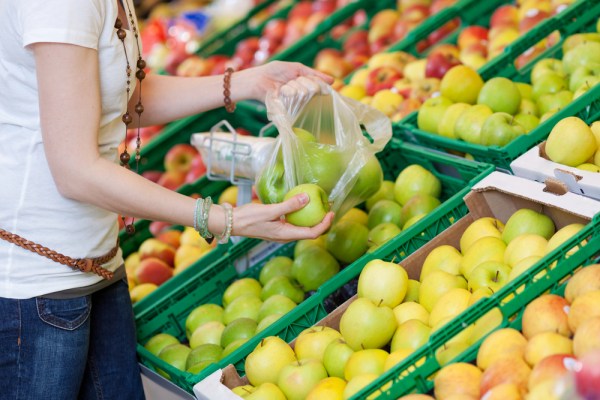Spoiler Alert has raised $2.5 million for enterprise software that helps manufacturers and farms put excess food inventory to good use, instead of tossing it out.
Since it was founded in 2015, the Boston-based startup has been working with large food producers and farms, including a recent partnership with Sysco Corporation. The publicly traded juggernaut racks up about $50 billion in revenue annually, selling food and beverages (wholesale) to restaurants, cafeterias and hotels.
Spoiler Alert CEO Ricky Ashenfelter said his startup isn’t doing anything that’s technologically or scientifically groundbreaking, per se — it’s using cloud-based software to connect organizations that simply didn’t coordinate well, namely food producers, logistics companies, food banks and pantries.
The Spoiler Alert platform helps food producers track what they’re getting rid of and attain tax credits for donating that food, when they do, instead of sending it to a landfill.
However, Spoiler Alert isn’t just about getting major food producers to give inventory away. It also helps companies sell produce, protein or other inventory to one another at discounted rates.
So-called “ugly” produce, like knotty, conjoined carrots, or flecked and bruised apples, can be just as tasty and healthy as perfect-looking counterparts. But it won’t sell at retail. So a farm can use Spoiler Alert to sell its ugly apples to a juice maker, or carrots to a soup maker, and so on.
The Spoiler Alert platform becomes, essentially, a secondary marketplace for wholesale food, Ashenfelter said, including ugly produce and products that are ripening and approaching spoilage.
Acre Venture Partners led the seed round in Spoiler Alert, and was joined by Valley Oak Investments, LaunchCapital, Fresh Source Capital and FTW Ventures.
Valley Oak Investments President Niko Hrdy said Spoiler Alert is tapping into some timely trends and regulations, which is one reason he backed the company. “There has been increasing attention to social responsibility within larger food companies, coupled with increasing regulation in the U.S. mandating how people need to dispose of surplus food, and giving them tax incentives to do it in a sustainable manner. The public’s eye is paying attention to products and services that are good for you, good for the planet and our local economies.”
Asked why he didn’t want to run the company as a grant-backed or nonprofit entity, Ashenfelter said:
“There are great nonprofits doing food recovery and waste aversion work. We wanted to be a tool to empower them to do their work better but never ultimately compete with them. At the same time, we felt tech could play a role here, and that a for-profit approach would attract the talent and investment we think this problem needs.”
The company intends to use its funding to make its services known to food producers and nonprofits who want to work with them in every major, metro-area in the U.S., the CEO said.
Spoiler Alert does not offer its own food-shipping services, but is working with for-profit, and nonprofit entities that have “wheels on the ground,” and can offer temperature-controlled transport of food.
The CEO said eventually Spoiler Alert wants to help food and beverage companies get rid of organic waste in every sustainable way possible. That could include possibly helping food and beverage makers sell spent grain, surplus corn or other “waste,” to makers of livestock feed or clean energy and plant-derived chemicals.
